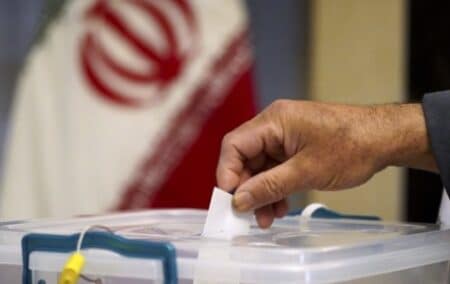Iranians went to the polls on Friday in a presidential election in which all the candidates need to be approved by Iran’s ruling council of clerics.
The hardliner candidate, Ebrahim Raisi, backed by Iran’s supreme leader, Ayatollah Ali Khamenei, is expected to win whilst so-called “moderate” candidate, Abdolnasser Hemmati, former head of the Iranian central bank, is expected to be placed second.
Dissatisfaction with the regime appears to have led to very low voter turnout, whilst official statistics are untrustworthy. Foreign media reported that turnout appears to be far lower than was the case in the 2017 presidential election. Foreign journalists reported few voters at stations around the country and short or non-existent queues at voting stations.
If Raisi is elected president he will be the first president of Iran who has US sanctions personally targeted at him. Raisi is the hardline Chief Justice of Iran and Khamenei’s former student. Khamenei has made it clear that Raisi is the candidate he favours. As Tehran Prosecutor in 1988, he was partly responsible for the executions of thousands of political prisoners.
The president will soon have to deal with the prospect of renewed negotiations with the United States over its nuclear weapons program, conflicts in Syria and Iraq, as well as domestic unrest and a weak economy.
With the supreme leader Khamenei turning 82 this year, the prospect of a power struggle in the wake of his death for the position of Supreme Leader may also threaten Iran’s stability.

